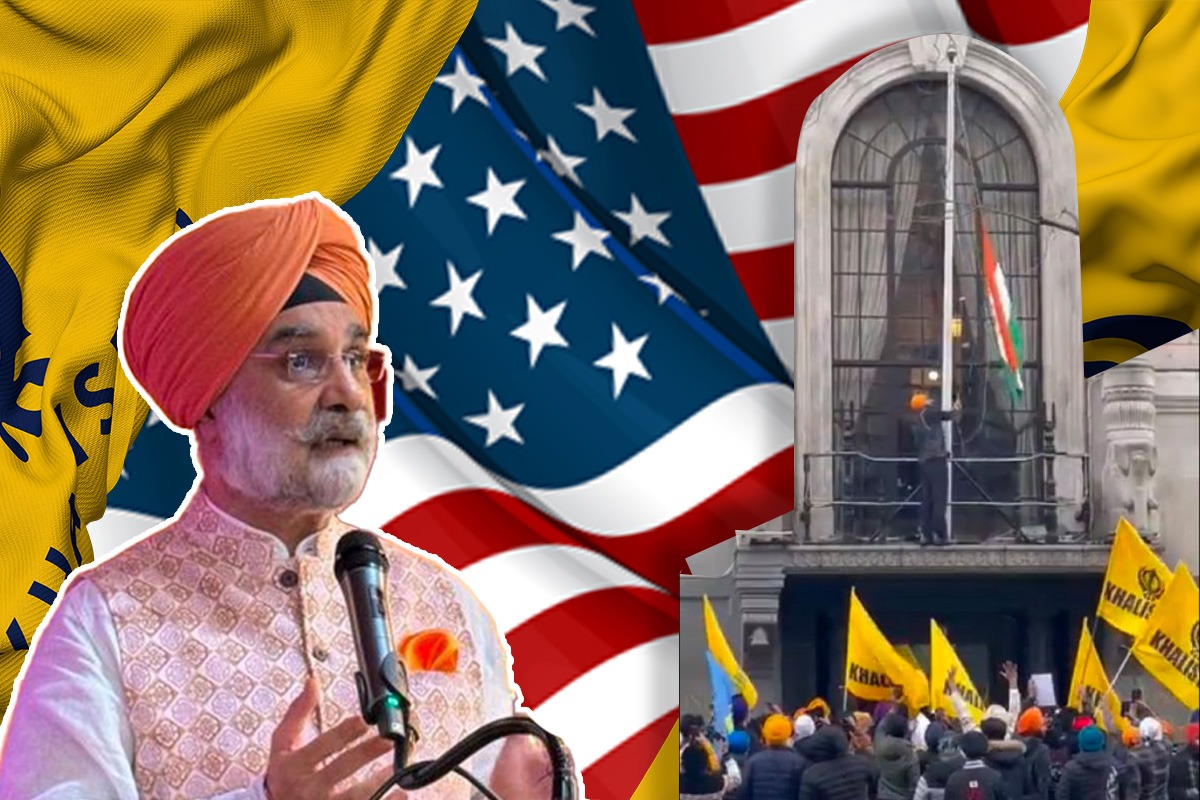The recent incident of heckling and protesting against India’s ambassador to the US, Taranjit Singh Sandhu, at a New York gurdwara was unfortunate and uncalled for. The ambassador, who was invited by the gurdwara management to address the Sikh community, faced slogans and banners from a handful of pro-Khalistan activists, who tried to disrupt his speech and question his credentials. The video of the incident, which went viral on social media, showed the ambassador calmly and politely responding to the hecklers, while the majority of the audience supported him and applauded his message.
The ambassador’s message was one of reassurance and solidarity with the Sikh community, both in India and abroad. He highlighted the importance and contribution of the Sikhs to India’s national identity, development, and security. He also emphasized the values and teachings of Sikhism, such as equality, tolerance, service, and humanism, which are relevant and inspiring for the entire world. He urged the Sikh diaspora to remain connected and engaged with their roots and heritage and to work together for the common good of humanity.
The ambassador’s message was timely and appropriate, given the recent developments and challenges that have affected the Sikh community and India-Canada relations. The allegations of India’s involvement in the killing of a pro-Khalistan leader, Sukhbir Singh Nijjar, in Canada, and the confirmation of the US discussing a plot against another Khalistani backer, Gurpatwant Singh Pannun, with India, have raised concerns and suspicions among some sections of the Sikh diaspora. These concerns have been exploited and amplified by a few radical elements, who have been propagating a separatist and violent agenda, in the name of Khalistan.
The Khalistan movement, which was crushed by the Indian security forces in the 1980s and 1990s, has no support or legitimacy in India, where the Sikhs enjoy full rights and freedoms as citizens of a democratic and secular country. The movement has also lost its appeal and relevance among the majority of the Sikh diaspora, who have integrated and prospered in their adopted countries while maintaining their distinct identity and culture. The Khalistan issue is a dead and divisive issue, which only serves the interests of a few anti-India forces, who want to create instability and chaos in the region.
The Sikh community, whether residing in India or abroad, must remain vigilant against the misinformation and incitement propagated by these elements that do not align with the authentic essence and goals of Sikhism. Additionally, it is crucial for the Sikh community to extend respect and backing to the representatives and authorities of the Indian government who strive to enhance collaboration and relations between India and the respective host nations. Simultaneously, the Indian government should persist in actively communicating and conversing with the Sikh diaspora, addressing any legitimate concerns or issues they may have.
The act of heckling the ambassador stands as an isolated and anomalous occurrence, not indicative of the prevailing sentiments and views held by the majority of the Sikh community in the US. The vast majority take pride in their Indian origin and heritage. It’s crucial not to let this incident overshadow or diminish the positive and constructive message conveyed by the ambassador, who deserves acknowledgement and respect for his resilience and composure. Furthermore, this incident should not impede or hinder the progress and strategic partnership between India and the US. This partnership is built on shared values and interests, mutually benefiting both nations and contributing positively to the global landscape.









